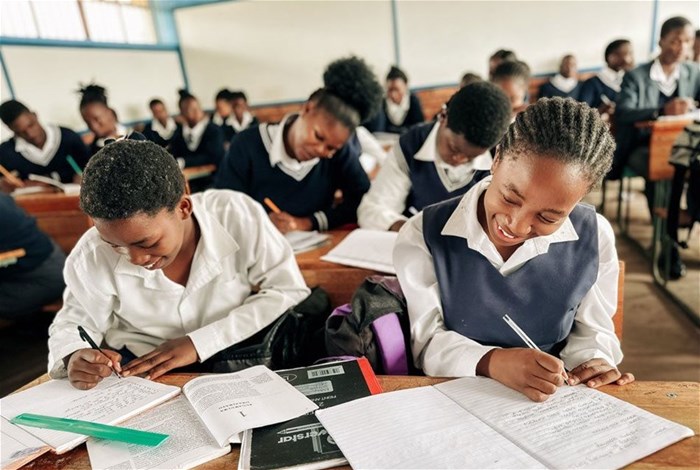This resonates with our former president, Nelson Mandela's ethos, "Education is the key to eliminating gender inequality, to reducing poverty, to creating a sustainable planet, to preventing needless deaths and illness, and to fostering peace."

The renewable energy company reportedly spent $1.76m on community development in 2022, with the principal focus being on education, where 73% of this budget was allocated.
Taking a long-term view to invest in host communities, BTE Renewables’ ‘Lifetime of Learning’ approach aims to achieve a transformational impact in communities, through education and integrated interventions at each life stage. This approach to education is linked to the United Nations’ Sustainable Development Goal 4, which aims to ‘ensure inclusive and equitable quality education and promote lifelong learning opportunities for all’.
Studies indicate that access to quality education helps to promote long-lasting, inclusive economic growth and social cohesion. In the South African context, BTE Renewables believe this is particularly pertinent for children from socio-economically disadvantaged backgrounds.
If a child either does not have access to education or has very poor education at any phase in their path of education, this can stunt the remainder of the process. It snowballs, resulting in a lack of confidence, exclusion, and a lack of access to economic opportunities, perpetuating the cycle of poverty.
Over the 20-year operations of the company’s wind and solar power plants, this long-term approach to education and harnessing development opportunities has the potential to impact beneficiary communities in a meaningful way, explains Libby Hirshon, sustainability director at BTE Renewables.
“An analysis of the socio-economic context and root causes of exclusion in each community gives us an insight into the barriers or gaps in the learning and development opportunities throughout their whole life journey. By understanding this, we can address barriers and gaps at each identified stage of development.
In the long term, this means that the beneficiaries of the community investment can build on the investment in their education, learning and development throughout their whole learning journey, resulting in an economically active individual able to take up livelihood and employment opportunities. Without this, longer-term educational improvements through early-stage interventions such as at the ECD stage, could be hindered by a gap in the primary or literacy stage of development.”

“We are expecting to see the most significant impacts over time when some of the longer-term programmes start to show deep and meaningful impact. Meanwhile, short-term outputs and outcomes include 48 learners in our communities receiving bursaries, nearly 1 500 students gaining access to ICT, over 2000 students with access to study guides, 36 small businesses receiving business support and many other beneficiaries at various stages of the ‘Lifetime of Learning’ journey,” added Hirshon.
Speaking to Celiwe Mabaso, the company’s senior social performance manager, “As one example, we have introduced multiple targeted interventions at Lonwabo High School, ensuring support to learners, but also creating opportunities for small businesses and interlinkages between them.
Now organisations such as the women’s co-operative who established the food garden at the school, and the supplier who provided the fencing, are involved in providing both voluntary and paid services to the school. Everything that’s being done now forms part of a whole-school transformation programme. In turn, these initiatives are assisting in making the community thrive.”
The long term impact will certainly take time to quantify, but already, just two years into the programme, results are clear.
“We see education as a tool to positively impact lives in a sustainable manner. Through this lifetime approach, we aim to provide communities with the opportunity to build a good, strong foundation of learning and development so that they can take up and create livelihood opportunities that are available to them in becoming active participants in the economy,” concluded Hirshon.